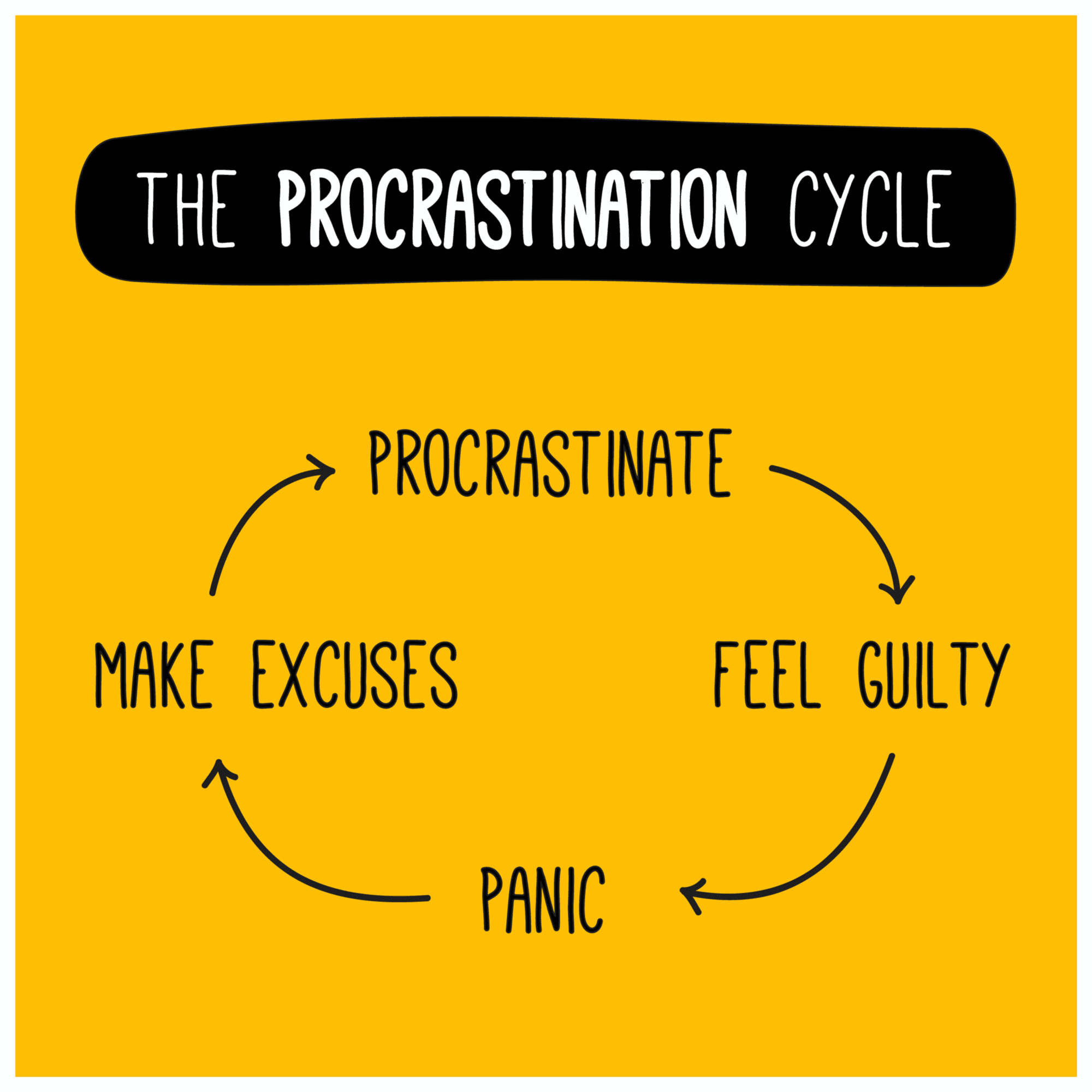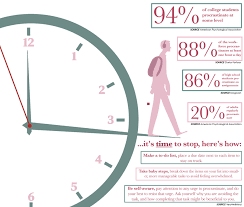The Psychology of Procrastination
Introduction
We’ve all been there, staring at a looming deadline or a task that we just can’t seem to start. Procrastination – the act of delaying or putting off tasks – can be a real problem, affecting our productivity, relationships, and even our health and finances. So, what exactly is procrastination and why is it such a big deal? Essentially, procrastination is the act of choosing to do something else instead of the task that needs to be done. At first, it might seem like a harmless habit, but when it becomes a pattern, it can have serious consequences. In the following sections, we’ll take a deep dive into the psychology of procrastination, how it affects our lives, and practical tips for overcoming it.
The Psychology of Procrastination
Why do we procrastinate? The answer may lie in our evolutionary history. As humans evolved, our brains developed a way to prioritize tasks based on their importance and urgency. However, in modern times, our brains can be easily tricked by the constant stream of distractions and instant gratifications. Emotions also play a significant role in procrastination. Fear of failure, anxiety, and low self-esteem can all contribute to procrastination. We may delay a task because we feel overwhelmed or afraid of the outcome. The brain itself also contributes to procrastination.
The prefrontal cortex, responsible for decision-making and planning, can become exhausted after prolonged periods of focus. This exhaustion leads to a reduced ability to make decisions or take action, making procrastination an easy pattern to slip into. But fear not, there are ways to overcome procrastination. By chunking tasks into smaller, manageable pieces, creating a schedule, and eliminating distractions, we can find ways to work through the procrastination. And, if all else fails, remember that procrastination may actually boost creativity, so don’t feel too bad about taking a break now and then.
Types of Procrastinators
Types of Procrastinators: We all procrastinate, but did you know there are different types of procrastinators? First, there are the perfectionists. They want everything to be perfect, which leads them to spend too much time on one task and leave others unfinished. Then, there are the dreamers. They have so many great ideas, but struggle with actually putting them into action. They often get lost in daydreams and fail to take action. Next, there are the worriers. They have a hard time making decisions because they are constantly worried about the consequences. This leads them to delay making important decisions until the last minute. And finally, there are the defiers. They procrastinate because they don’t want to be told what to do. They rebel against deadlines and rules, often leading them to miss important deadlines. No matter what type of procrastinator you are, it’s important to recognize it and work towards overcoming it.
The Effects of Procrastination on Your Life
Procrastination may seem like a harmless habit, but it can have a significant impact on your life. Let’s explore some of the effects it can have on your health, productivity, relationships, and finances. Firstly, procrastination can take a toll on your health. When we procrastinate, we tend to put off tasks until the last minute, causing unnecessary stress and anxiety. The lack of sleep and exercise can lead to health problems like heart disease and depression. The productivity of a person can take a significant hit with procrastination. When we don’t plan and prioritize our tasks, we end up wasting valuable time on unimportant things. The stress of leaving things for the last minute can also affect productivity significantly. Procrastination can strain relationships, causing tension and conflict.
When deadlines are not met because of procrastination, it can cause frustration and disappointment for both parties involved. The lack of time management also means less quality time spent with friends and family. Finally, procrastination can also have a significant impact on your finances. When we push back tasks like budgeting or paying bills, we miss deadlines and incur late fees or penalties. Procrastination can also lead to poor financial decision-making, which can have long-lasting effects. In conclusion, procrastination may seem like a harmless habit, but it can have serious consequences. By prioritizing tasks, setting goals, and managing time effectively, it’s possible to overcome this habit and live a more fulfilling life.
Overcoming Procrastination
Let’s be real, procrastination is a tough habit to kick. But fear not, my fellow procrastinators, for there are ways to overcome this pesky tendency. First on the list is chunking. Essentially, this means breaking down your tasks into smaller, more manageable parts. It’s much easier to tackle smaller tasks one at a time than to be overwhelmed by one giant task. Plus, checking off those little boxes is oh-so-satisfying. Next up is “eating the frog.” No, I don’t mean that literally (gross). It means completing the task you dread the most first thing in the morning. Get it out of the way instead of letting it hang over your head all day. Trust me, it feels like a weight off your shoulders once it’s done. Creating a schedule is also essential. It’s easy to get lost in the endless sea of tasks to do, but having a clear plan of action can help keep you on track. Make a to-do list and prioritize your tasks. And stick to it! Eliminating distractions is key. We all know how tempting it is to constantly check our phones or watch “just one more” episode of our favorite show. But by avoiding these distractions, we can focus on the task at hand and get it done more efficiently. Finally, changing your mindset is crucial. Instead of focusing on the overwhelming nature of the task, try to focus on the benefits of completing it. Think of the satisfaction of getting it done and how much more free time you’ll have once it’s out of the way. Positive thinking can go a long way in breaking the cycle of procrastination. Now that we’ve armed you with some helpful tips, it’s time to kick procrastination to the curb. Go forth and conquer!
Procrastination and Creativity
Let’s tackle the age-old question – does procrastination help or hinder creativity? The myth of the creative genius suggests that artists and writers need to wait for inspiration to strike before they can produce their best work. But is this really true? Studies have shown that procrastination can actually be detrimental to creativity. The longer we put things off, the more stressed and anxious we become. This can lead to a creative block, where we struggle to come up with new ideas or solutions. However, this doesn’t mean that we should abandon procrastination altogether. In fact, there is a link between procrastination and creativity. When we procrastinate, our brains continue to work on the problem in the background, even if we’re not actively thinking about it.

This can lead to sudden bursts of inspiration and ideas. So, how do we strike a balance between procrastination and creativity? First, it’s important to recognize when we’re procrastinating and why. Are we avoiding a task because it’s difficult or because we’re afraid of failure? Once we understand our reasons for procrastinating, we can take steps to break the cycle. Some strategies include setting deadlines, breaking tasks into smaller chunks, and eliminating distractions. Above all, it’s important to give ourselves permission to be imperfect and to make mistakes. Creativity requires vulnerability and risk-taking, and that’s not always easy. In conclusion, procrastination and creativity can be a tricky balancing act. While there is a link between the two, it’s important not to rely on procrastination as a crutch. By understanding our reasons for procrastinating and taking steps to break the cycle, we can tap into our natural creativity and produce our best work.
Conclusion
Your life may feel like a never-ending cycle of deadlines and unfinished tasks, but overcoming procrastination can be the key to a happier, healthier you. Learn to chunk your work, eat the frog, create a schedule, eliminate distractions, and change your mindset. Don’t fall for the myth of the creative genius – balance procrastination with creativity. The importance of overcoming procrastination cannot be overstated. Final thoughts? Take action now and start building your best life, one deadline at a time.




